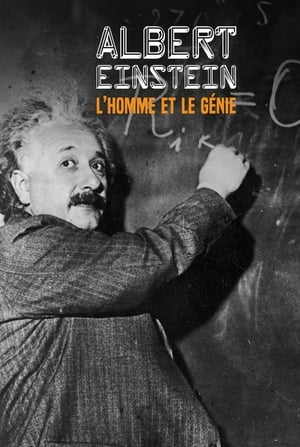
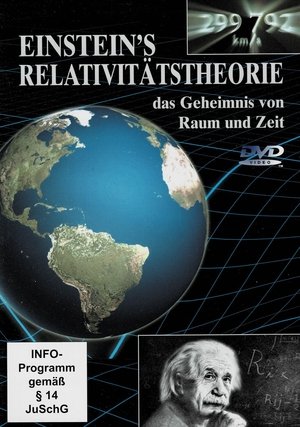
Einstein's Relativitätstheorie - Das Geheimnis von Raum und Zeit(2003)
Movie: Einstein's Relativitätstheorie - Das Geheimnis von Raum und Zeit

Einstein's Relativitätstheorie - Das Geheimnis von Raum und Zeit
HomePage
Overview
Release Date
2003-09-01
Average
0
Rating:
0.0 startsTagline
Genres
Languages:
DeutschKeywords
Similar Movies
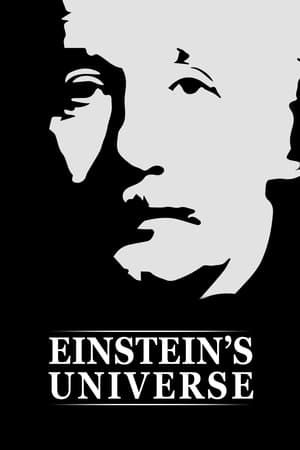 8.0
8.0Einstein's Universe(en)
A documentary produced in 1979 to celebrate the centenary of the birth of Albert Einstein. Narrated and hosted by Peter Ustinov and written by Nigel Calder.
Frames of Reference(en)
An educational physics film utilizing a fascinating set consisting of a rotating table and furniture occupying surprisingly unpredictable spots within the viewing area, Leacock’s Frames of Reference (1960), features fine cinematography by Abraham Morochnik, and funny narration by University of Toronto professors Donald Ivey and Patterson Hume, in a wonderful example of the fun a creative team of filmmakers can have with a subject other, less imaginative types might find pedestrian.
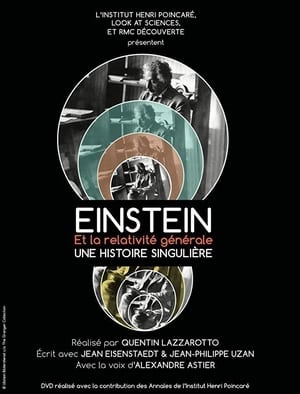 7.2
7.2Einstein et la Relativité Générale, une histoire singulière(fr)
Albert Einstein's theory of general relativity has revolutionised our understanding of gravity, space and time. Initially acclaimed, then forgotten, and now rediscovered, the adventure of this hundred-year-old theory has marked the scientific history of the 20th century. From its inception, a mathematical difficulty arose that could have nipped the theory in the bud: the Schwarzschild singularity. In the company of great international relativistic physicists, the viewer embarks on a discovery of this theory with a singular destiny. We discover a "curved" universe that proves to be even stranger than Einstein had envisioned, and harbours some objects - such as black holes - that still challenge today's scientists.
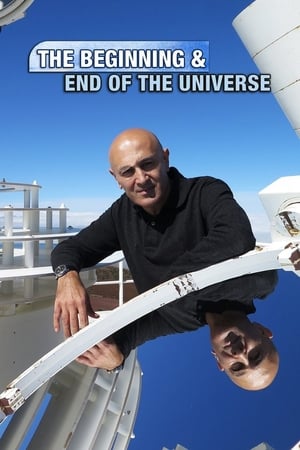 6.8
6.8The Beginning and End of the Universe(en)
Prof. Jim Al-Khalili tackles the biggest subject of all, the universe. Through a series of critical observations and experiments that revolutionised our understanding of our world Jim guides us through the greatest cosmic detective story of all. He takes us from the beginning of the universe to the end time and answers the question: where did the universe come from and how will it end?
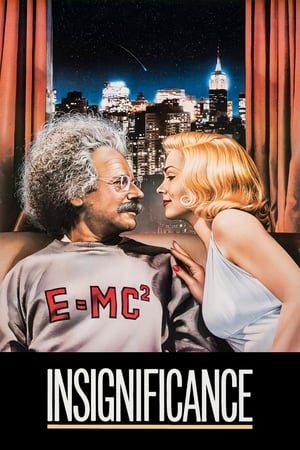 6.4
6.4Insignificance(en)
Four 1950s cultural icons who conceivably could have met but probably didn't, fictionally do so in this modern fable of post-WWII America. Visually intriguing, the film has a fluid progression of flashbacks and flashforwards centering on the fictional Einstein's current observations, childhood memories, and apprehensions for the future.
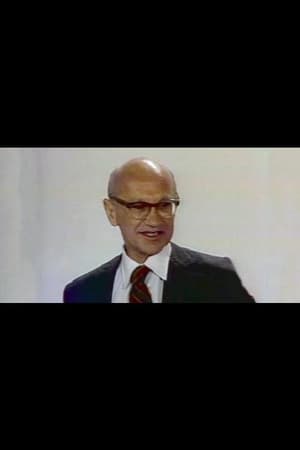 0.0
0.0Who Protects the Consumer?(en)
Lecture given at Ford Foundation in New York City as part of the 'Milton Friedman Speaks' series.
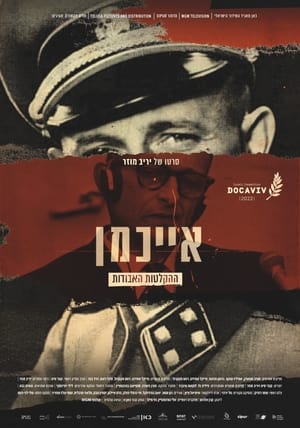 6.0
6.0The Devil's Confession: The Lost Eichmann Tapes(en)
A few weeks before the opening of the Eichmann trial, transcripts of recorded conversations that Adolf Eichmann had with a Dutch Nazi journalist, Willem Sassen, were mysteriously handed over to prosecutor Gideon Hausner. The conversations were held a few years before Eichmann was brought to Israel by the Mossad. During the trial, Eichmann tried to convince that he was only a bureaucrat who carried out orders, but in the transcripts, Eichmann was found boasting and proud of his significant role in planning and executing the Final Solution. For the first time, we will confront Eichmann with himself in full color, revealing the hidden factors and motives that succeeded in hiding these recordings.
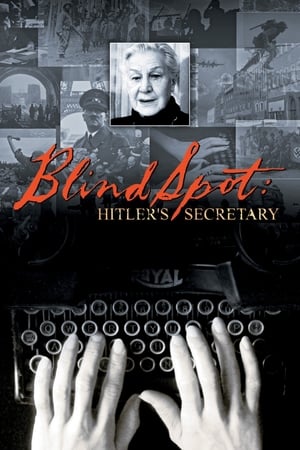 6.4
6.4Blind Spot: Hitler's Secretary(de)
Documentarians Andre Heller and Othmar Schmiderer turn their camera on 81-year-old Traudl Junge, who served as Adolf Hitler's secretary from 1942 to 1945, and allow her to speak about her experiences. Junge sheds light on life in the Third Reich and the days leading up to Hitler's death in the famed bunker, where Junge recorded Hitler's last will and testament. Her gripping account is nothing short of mesmerizing.
Screening from Within(zh)
"Screening from Within" juxtaposes the historical trajectories of the Chinese adoption of the Soviet “cinefication” movement and the contemporary transformations of itinerant film projection in China. Migrant workers of Beijing and Chengdu, rural inhabitants of Anhui, Sichuan and the Aba Tibetan Autonomous Prefecture, as well as projectionists from today and yesterday, share their thoughts, memory and experience about government and NGO-sponsored film screenings. Many of them remember the times when itinerant screening attracted huge crowds of viewers. Others—the younger ones—take video cameras in their own hands to film “from within.”
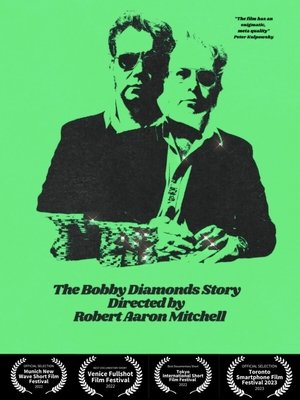 10.0
10.0The Bobby Diamonds Story(en)
Underground poker player Bobby Diamonds enters the spotlight in this hallucinatory, hilarious, and heartfelt documentary. Directed, Produced, and Edited by Robert Aaron Mitchell Executive Producer Sarah Dillard Mitchell Winner of Best Short Documentary Tokyo International Short Film Festival (2022) Winner of Best Short Documentary Venice Fullshot Film Festival (2022) Official Selection Munich New Wave Short Film Festival (2022) Official Selection Toronto Smartphone Film Festival (2023)
 10.0
10.0Smokehouse(en)
A group of friends reunite in the north of Scotland during summer.
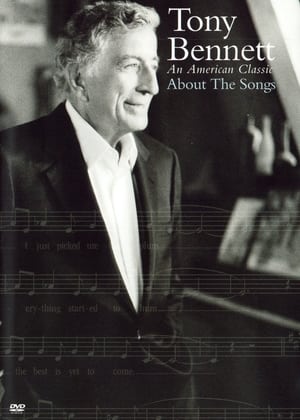 0.0
0.0Tony Bennett: An American Classic About the Songs(en)
Tony Bennett's 80th Birthday Celebration continues! In support of his Platinum and Grammy Award-winning CD, Duets: An American Classic, comes this revealing new documentary that highlights 12 of the groundbreaking Tony Bennett hits before they became Duets. About the Songs is a 30-minute documentary that chronicles the stories behind some of the great songs that defined Tony's career and played an undeniably important role in the American Songbook, such as RAGS TO RICHES, FOR ONCE IN MY LIFE and I LEFT MY HEART IN SAN FRANCISCO. Joining the discussion is noted George Washington University musicologist, Richard Golden, who provides great insight as both a music expert and Tony's friend. Hundreds of archived and rare photographs and memorabilia add to this intimate look into the life and memories of Tony Bennett and his music. Experience the stories behind the songs that have shaped the unprecedented career of this music and cultural icon.
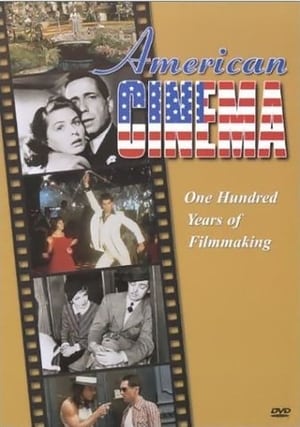 0.0
0.0American Cinema(en)
The history of Hollywood and filmmaking comes alive in this spectacular nine hour celebration of movie magic. It's a mesmerizing, epic analysis that combines rare archival film, key scenes from immortal movies, interviews with leading filmmakers and commentary from noted film scholars and critics. As seen on PBS, this highly acclaimed series is the definitive chronicle of the American cinema, from its beginning to today. Includes interviews with Robert Altman, Clint Eastwood, Harrison Ford, Spike Lee, George Lucas, Sidney Lumet, Julia Roberts, Martin Scorsese, Gene Siskel, Steven Spielberg, Oliver Stone, Quentin Tarantino, and many more. A New York Center for Visual History Production in co-production with KCET and the BBC
 7.0
7.0Lenin kam nur bis Lüdenscheid - Meine kleine deutsche Revolution(de)
The free, almost naive view from the perspective of a child puts the "68ers" in a new, illuminating light in the anniversary year 2008. The film is a provocative reckoning with the ideological upbringing that seemed so progressive and yet was suffocated by the children's desire to finally grow up. With an ironic eye and a feuilletonistic style, author Richard David Precht and Cologne documentary film director André Schäfer trace a childhood in the West German provinces - and place the major events of those years in completely different, smaller and very private contexts.
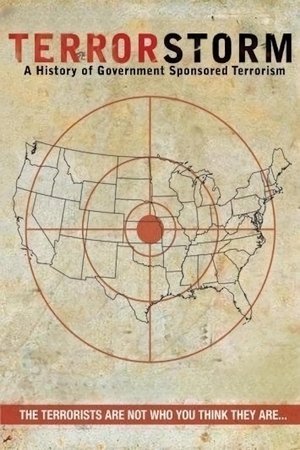 6.0
6.0Terrorstorm(en)
Throughout history, regimes have used terror attacks as a means of control over their populations, and for the last 100 years, Western governments have employed the same measures.
